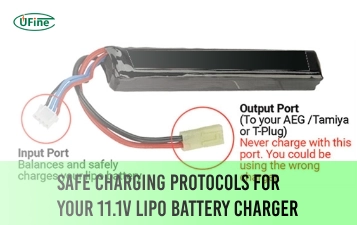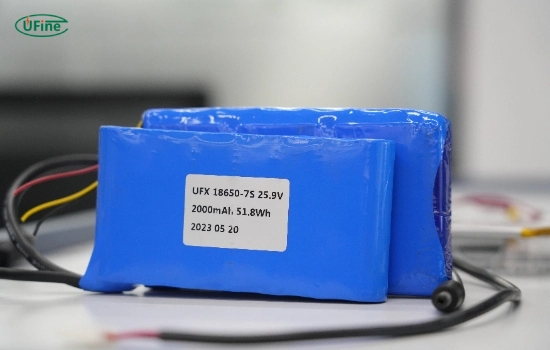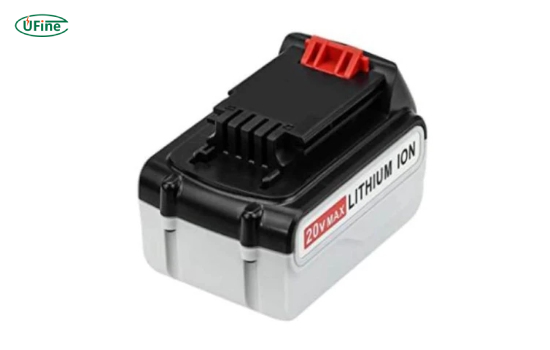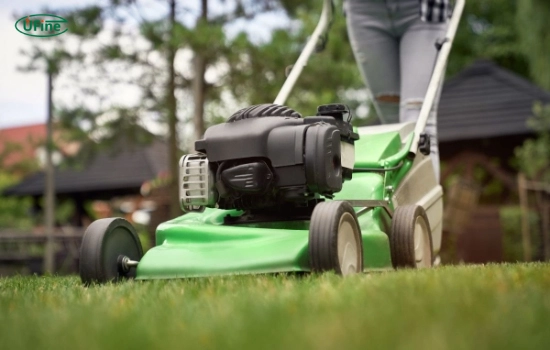A lawn mower battery is crucial for the effective operation of your lawn mower, providing the necessary power to start the engine and run various electrical components. Understanding the average lifespan of a lawn mower battery helps you plan for maintenance. It ensures that your mower operates smoothly throughout its service life. This article will delve into the types of lawn mower batteries, factors affecting their lifespan, maintenance tips, and common causes of battery failure.
Part 1. What are the types of lawn mower batteries?
Lawn mower batteries come in several types, each with distinct characteristics that can affect performance and longevity. Here’s a deeper look at the most common types:
1. Lead-Acid Batteries: These are traditional batteries used in many gas-powered mowers. They are relatively inexpensive and reliable but can be heavy and require regular maintenance. There are two main subtypes:
- Flooded Lead-Acid: Requires periodic checks of electrolyte levels and is sensitive to overcharging.
- Absorbent Glass Mat (AGM): A sealed version that is maintenance-free and less prone to spillage, making it suitable for various orientations.
2. Lithium-Ion Batteries: Increasingly popular in electric mowers, lithium-ion batteries are lightweight and have a longer lifespan than lead-acid batteries. They charge quickly and require minimal maintenance, making them ideal for frequent use.
3. Nickel-Cadmium (Ni-Cd) Batteries: These were once common in older models but are now less frequently used due to their lower capacity and environmental concerns. They can handle deep discharges but have a shorter lifespan than lithium-ion batteries.
4. Gel Cell Batteries: Like AGM, gel cell batteries are sealed and maintenance-free. They are resistant to vibration and can handle deep discharge cycles well, making them suitable for rugged use.
Understanding these battery types helps you choose the lawn mower and informs you about their care requirements.
Part 2. What is the average lifespan of a lawn mower battery?
The average lifespan of a lawn mower battery varies by type:
- Lead-Acid Batteries: Generally last between 3 to 5 years with proper care.
- Lithium-Ion Batteries: Depending on usage patterns and maintenance, these can last 5 to 10 years.
- Nickel-cadmium batteries: These batteries typically last about 2 to 3 years but are becoming increasingly rare in modern mowers.
These lifespans can fluctuate based on several factors, which we will explore next.
Part 3. What factors affect lawn mower battery lifespan?
Several key factors can significantly influence how long your lawn mower battery will last:
- Battery Quality: Higher-quality batteries often utilize better materials and construction methods, leading to longer lifespans than cheaper alternatives.
- Usage Patterns: The frequency and duration of use impact battery life. Regular mowing keeps the battery charged, but using it excessively without breaks can lead to wear over time.
- Temperature Exposure: Extreme hot and cold temperatures can accelerate battery deterioration. Storing your mower in moderate conditions is essential for prolonging battery life.
- Maintenance Practices: Regularly checking connections, cleaning terminals, and ensuring proper fluid levels (for lead-acid batteries) can significantly extend battery life. Neglecting these tasks can lead to corrosion or connectivity issues.
- Charging Habits: It is crucial to follow manufacturer guidelines for charging times. Overcharging or undercharging can cause irreversible damage, leading to premature battery failure.
By understanding these factors, you can take proactive steps to maximize your battery’s lifespan and ensure reliable performance.
Part 4. How can you extend the lifespan of your lawn mower battery?
To prolong the life of your lawn mower battery, consider implementing these practical tips:
- Regular Maintenance: Clean the terminals regularly to prevent corrosion. Check electrolyte levels periodically for lead-acid batteries and top off with distilled water as needed.
- Proper Charging Practices: Always use a charger designed specifically for your type of battery. Avoid letting the battery discharge completely before recharging; this practice can significantly reduce lifespan.
- Smart Storage Solutions: If you’re not using your mower for an extended period, store it in a cool, dry place. Disconnecting the battery during long-term storage can help prevent drainage.
- Monitor Usage Frequency: Regular use keeps the battery healthy. If you mow infrequently, consider using a trickle charger to maintain charge levels without overcharging.
- Temperature Management: Avoid exposing your mower to extreme temperatures during storage or operation. Keeping it in a climate-controlled environment will help maintain optimal performance.
Implementing these practices enhances your battery’s longevity and ensures efficient lawn mower operation when needed.
Part 5. What are the most common causes of lawn mower battery failure?
Understanding what leads to battery failure can help you avoid unexpected breakdowns. Here are some common causes:
- Corrosion on Terminals: Corrosion can build up on battery terminals over time, leading to poor connectivity and reduced power delivery. Regular cleaning is essential to prevent this issue.
- Deep Discharge Cycles: Allowing a battery to discharge completely before recharging can cause significant damage, especially for lead-acid types that rely on maintaining a certain charge level.
- Extreme Temperatures: Exposure to high heat or freezing conditions can damage the battery’s internal components, leading to decreased performance or complete failure.
- Infrequent Use: Leaving a battery unused for long periods without charging can lead to sulfation in lead-acid batteries or capacity loss in lithium-ion types.
- Poor Charging Practices: Using incorrect chargers or failing to follow charging guidelines can result in overcharging or undercharging, shortening a battery’s lifespan.
By being aware of these issues, you can take steps to mitigate risks and keep your lawn mower running smoothly throughout its service life.
Part 6. What are common signs that your lawn mower battery needs replacement?
Recognizing when your lawn mower battery is nearing the end of its life is crucial for maintaining optimal performance. Look out for these signs:
- Difficulty Starting: If your mower struggles to start or requires multiple attempts, it may be time for a new battery.
- Diminished Runtime: A noticeable decrease in the time your mower runs before recharging is a clear indicator of battery wear.
- Corrosion or Leakage: Visible corrosion on terminals or leaking fluids from the battery are signs that replacement is necessary.
Being vigilant about these signs can avoid unexpected breakdowns during mowing season.
Part 7. How much does it cost to replace a lawn mower battery?
The cost of replacing a lawn mower battery varies based on type and brand:
- Lead-Acid Batteries: Typically range from $30 to $100, depending on quality and capacity.
- Lithium-Ion Batteries: Generally more expensive, costing between $100 to $300, but they offer longer lifespans and better performance.
- Nickel-cadmium batteries: These batteries are usually priced around $40 to $80, though they are becoming less common in new models.
When budgeting for a replacement, consider upfront costs and potential long-term savings based on lifespan and efficiency.
Part 8. FAQs
-
What is the best type of battery for my lawn mower?
The best type depends on your specific needs. Lithium-ion batteries are ideal for electric mowers due to their longevity and efficiency. Lead-acid batteries are reliable but require more maintenance for gas mowers. -
How do I know if my lawn mower battery is dead?
Signs include difficulty starting the mower, reduced runtime between charges, or visible corrosion on terminals. It may be time for a replacement if you’re consistently experiencing these issues. -
Can I use any charger for my lawn mower battery?
No! Always use a charger specifically designed for your type of battery (lead-acid or lithium-ion) to avoid damage and ensure safety during charging. -
How often should I replace my lawn mower battery?
It would help if you replaced lead-acid batteries every 3 to 5 years. With proper care, lithium-ion batteries can last up to 10 years. Monitor performance regularly for early signs of failure. -
Is it safe to store my lawn mower battery indoors?
Yes! Storing your lawn mower battery indoors is safe if you keep it in a cool, dry place away from extreme temperatures that could cause damage or corrosion.
Related Tags:
More Articles

Safe Charging Protocols for Your 11.1V LiPo Battery Charger
Safely charge your 11.1V LiPo battery by following proper rates, using safety tools, and avoiding common charging mistakes.
11.1 V LiPo Battery Airsoft: Boosting Field Performance
Upgrade your airsoft gun with an 11.1V LiPo battery for faster firing, longer runtime, and top-tier performance on the battlefield.
Batteries for Trolling Motors Lightweight vs. Leaf Blower Power
Explore the best lightweight trolling motor batteries and how they compare to leaf blower power for performance, portability, and runtime.
What Is a 2C Battery?
Learn what a 2C battery is, how C-rates affect performance, and how to calculate the number of batteries your device needs.
What Battery Does LED Strips Use?
Discover which batteries power LED strips best. Learn about voltage, capacity, battery types, and how to safely power your LED lighting projects.






